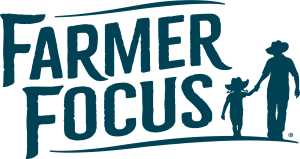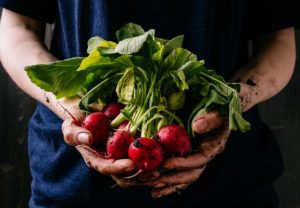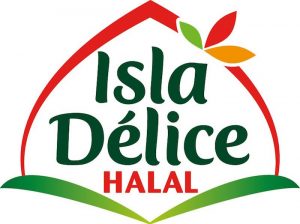Written by Naima Bouteldja

Since 2012, AVS has certified organic meat and meat products for Bionoor. Although most of our certification work concerns meat derived from industrial farming, we consider that the production of halal meat should be more environmentally friendly and more respectful towards the welfare of the animals, and of those employed in the meat industry. That’s why we support any form of innovative entrepreneurship that respects the ethics of halal as we conceive it. In our most recent interview with Bionoor, its managing director, Hadj Khelil, explains the difficulties his company faces to make the concept of a meat that is both halal and organic palatable to organic certifiers and animal welfare organisations.
Interview with Hadj Khelil, Managing Director of Bionoor
What is Bionoor?
Hadj Khelil: We are primarily producers of organic dates. We have contributed to the development of organic farming in a number of African countries, most notably Algeria (where we were the first organisation to obtain the licences to export products with the AB[1] label). This innovative mindset is part of our genetic makeup. We started with dates and then we diversified into other products including, saffron chocolate, teas and more recently organic drinks made from essential oils.
How did you manage to produce organic dates?
Hadj Khelil: There is a kind of urban legend which claims that everything produced back home is organic, whereas in reality, the use of chemical fertilizers in Morocco, Algeria and Tunisia is very common. It’s true that the use of these fertilizers is less systematic in these countries than in Europe. Most often Algerian farmers use these products once or twice a year, most notably to treat parasites or weeds.
To the issue of chemical fertilizers, one must add the difficulties specific to these regions. In Algeria, for example, when certain areas are blighted by swarms of locusts, the authorities can treat the problem by spraying pesticides from airplanes. So a farmer may very well farm organically, and avoid the use of weed-killers, but one evening a C-130 passes over his crop and sprays it with pesticides to eradicate the locusts. As a result, finding biological products in Algeria that meet European standards is not as straightforward as one might think.
From this initial observation, we visited Algerian farmers in the early 2000s to raise awareness of the organic ethos. It took time but we eventually managed to convince a dozen producers in vast production catchments (in some cases 3 times the size of the Parisian region) to produce dates according to organic standards. We also met organic certification bodies and in the same way as with the farmers we had to talk, negotiate and explain until we eventually secured, from the Algerian Ministry of Agriculture and Rural Development and the European authorities, the right to import into Europe, Algerian dates with the AB label.
And what guarantees can you give to consumers that these dates are organic?
Hadj Khelil: What you need to understand is that even if there are exceptions when production takes place outside Europe, the requirements in terms of organic are more severe, and when you do manage to gain an organic stamp on your Algerian dates, you can be sure that they really are organic because the control system is more demanding.
Bionoor was the first company in France to offer its customers meat that was both organic and halal. Can you tell us about the difficulties you’ve encountered in making third parties accept that meat, derived from unstunned animals, can be labelled organic?
Hadj Khelil: For two years, we moved heaven and earth to obtain authorisation from Ecocert (organic certification body), which was initially totally opposed to the idea of certifying halal meat. But we put several arguments to them. First, on a purely scientific level, we showed them that it is impossible to reach a definitive answer. There is no compelling evidence that slaughter without stunning poses more of a welfare problem than slaughter with stunning. Some studies suggest that slaughter without stunning is better, others maintain the opposite. We also pointed out to Ecocert that they couldn’t on one hand boast of wanting to democratize access to organic by opening it to the widest audience, but then on the other hand prevent Muslims and Jewish people, eager to eat halal or kosher meat, access to it. And finally, legally, while it is very specific on many other points, the European legislation on organic production does not specify the methods of slaughtering. So currently there are no legal grounds to oppose ritual slaughter.
After many exchanges, Ecocert ended up agreeing to certify our halal meat as organic, but this decision was immediately attacked by the OABA (Society for the Welfare of Slaughter Animals). I don’t think OABA expected Ecocert’s decision and initially they asked the certification agency to revoke our use of the AB label. Rebuffed by Ecocert, OABA attacked the former in court as well as the French Ministry of Agriculture and the INAO (National Institute of Origin and Quality). And for the last 3 years, OABA has also attacked us directly. We’ve had to hire two lawyers who are closely following the case.
On what grounds can OABA take you to court?
Hadj Khelil: One of the articles in the regulations that govern organic production states that even if your animal is perfectly organic (in the chemical sense), if you have subjected it to any kind of maltreatment, it loses its organic status. Thus the OABA argues that the absence of electronarcosis is tantamount to maltreatment that compromises the organic character of the meat, whereas this is not scientifically proven. OABA’s latest argument is to assert that many Muslims accept the stunning practice, which would imply that those who don’t are not only Muslims but also literalists.
For OABA Ecocert’s decision is a betrayal of the spirit of organic food. At the time, they launched a petition on the internet that collected nearly 10,000 signatures. Bionoor, who was once a willing student, well-perceived by Ecocert, has now become a traitor to the organic cause.
The final judgment has not yet been rendered?
Hadj Khelil: Until recently the courts had judged against the argument of the OABA, but last July the Versailles Court of Appeal considered that it couldn’t determine if ritual slaughter without stunning was compatible with the objective of organic production and it decided to refer the case to the Court of Justice of the European Union. The judgement the European Court will render in a few months time could potentially set a precedent and thus determine if it’s possible for Bionoor, but also for the other actors in the market, to offer meat which is both halal (or kosher) and organic.
What do you think motivates OABA?
Hadj Khelil: For some there’s probably a fear of Islam, but I also think that most of them are animal rights activists who have found themselves a scapegoat. To speak only of halal issues makes it possible to forget that almost all French people eat industrial meat and that whether or not the animals have been stunned, it still ends up killed, most often after being bred in the most awful conditions.
Any person in his right mind hates to see or make an animal suffer, so killing an animal leads to a psychological and ethical dilemma not only for the OABA but for all of us. And even though we don’t know whether stunning is less painful for the animal, the practice of stunning has provided some people with an excuse to justify consuming meat: something that allows them to proclaim, ‘we may kill an animal but we don’t make it suffer!’ If you absolutely don’t want the animal to suffer then don’t kill it and don’t consume it. That’s the real issue. By refusing stunning practices, we undermine this excuse. We are consistent, we assume the fact that to feed oneself one has to kill animals and that it will lead to suffering. The true struggle for us is not to impose stunning but to drastically reduce ones meat’s consumption. One must reduce one’s level of food intake and only consume what is good and necessary. For us this is the true path of the Sunnah. The Prophet (peace and blessings upon him) seldom ate any meat. Our objective is not to flood the market with our products. There are roughly 1 billion animals killed every year in French slaughterhouses and our business leads to the slaughter of 15 cows every 21 days. It’s a drop in the ocean compared to the resources deployed by the OABA to deny us the organic label. We are in fact the tree that obscures the wood or rather the tree that obscures Amazonia.
[1] AB is the most common organic label in France and Ecocert is the largest organic certifiers in the country. See http://www.ecolabelindex.com/ecolabel/ab-agriculture-biologique. For an overview of the labelling and certification agencies for organic farming in France see: Il y a bio et bio. Voici comment s’y retrouver dans les labels d’agriculture biologiques, Reporterre, 9/02/2015.
Naima Bouteldja is a freelance writer and can be contacted at: naima.bouteldja@gmail.com



